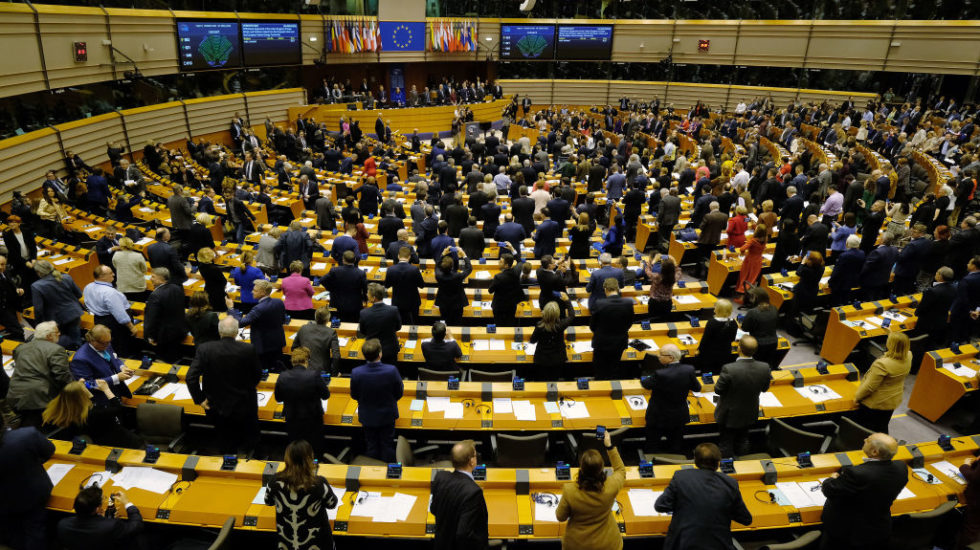Britain will “Brexit” — exit the European Union — on Friday.
The European Parliament voted 621-49 on Wednesday in favor of the long-debated withdrawal agreement.
“The vote — something of a relieved whimper rather than a bang, as its result was expected — brings to an end three and a half years of confusion, political division and missed deadlines,” reports the New York Times.
But the larger picture of British relations with their European neighbors — their economic relations — won’t be fully resolved until late this year.
“After Britain’s departure on Friday, the U.K. will remain within the EU’s economic arrangements until the end of the year though it won’t have a say in policy as it will not be a member of the EU anymore,” explains the Associated Press, adding that “Britain is the first country to leave the EU and … is a moment of enormous sadness and reduces the number in the bloc to 27.”
For the EU, the Times says, “the loss of Britain is a significant defeat. It represents a loss of size, reach, momentum and permanence, comparable to Texas deciding to break away from the United States.”
EU parliamentarians sang “Auld Lang Syne” and some raised a sign reading: “It’s not goodbye, it’s au revoir” — that is, “until we meet again.”
Despite the split, it’s clear that Brexit has actually strengthened ties among the Union’s remaining members.
“As they have negotiated with Britain, at least, the 27 have stayed together, much to London’s disappointment, and talk of other countries’ leaving the bloc has disappeared,” the Times reports.



